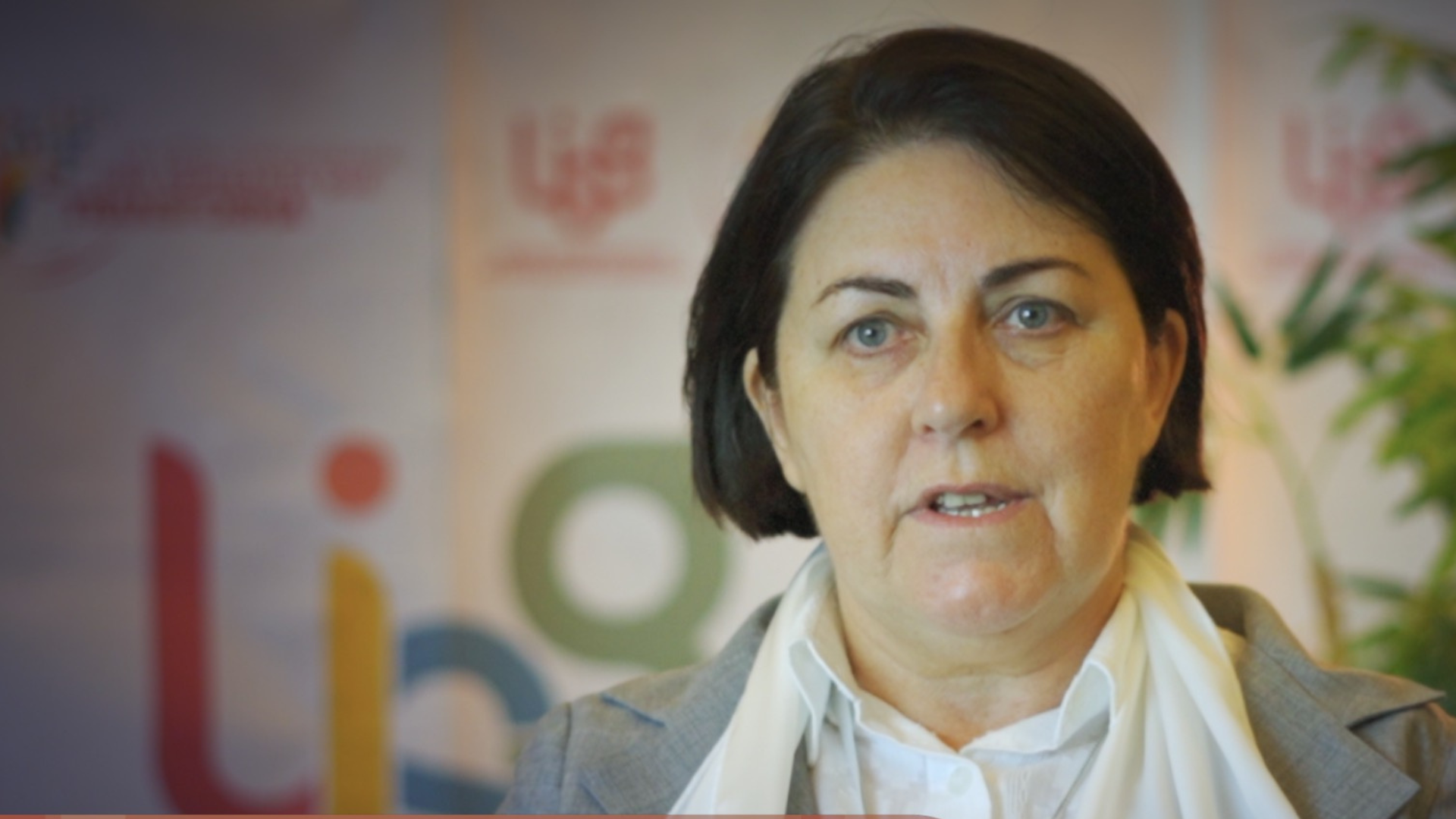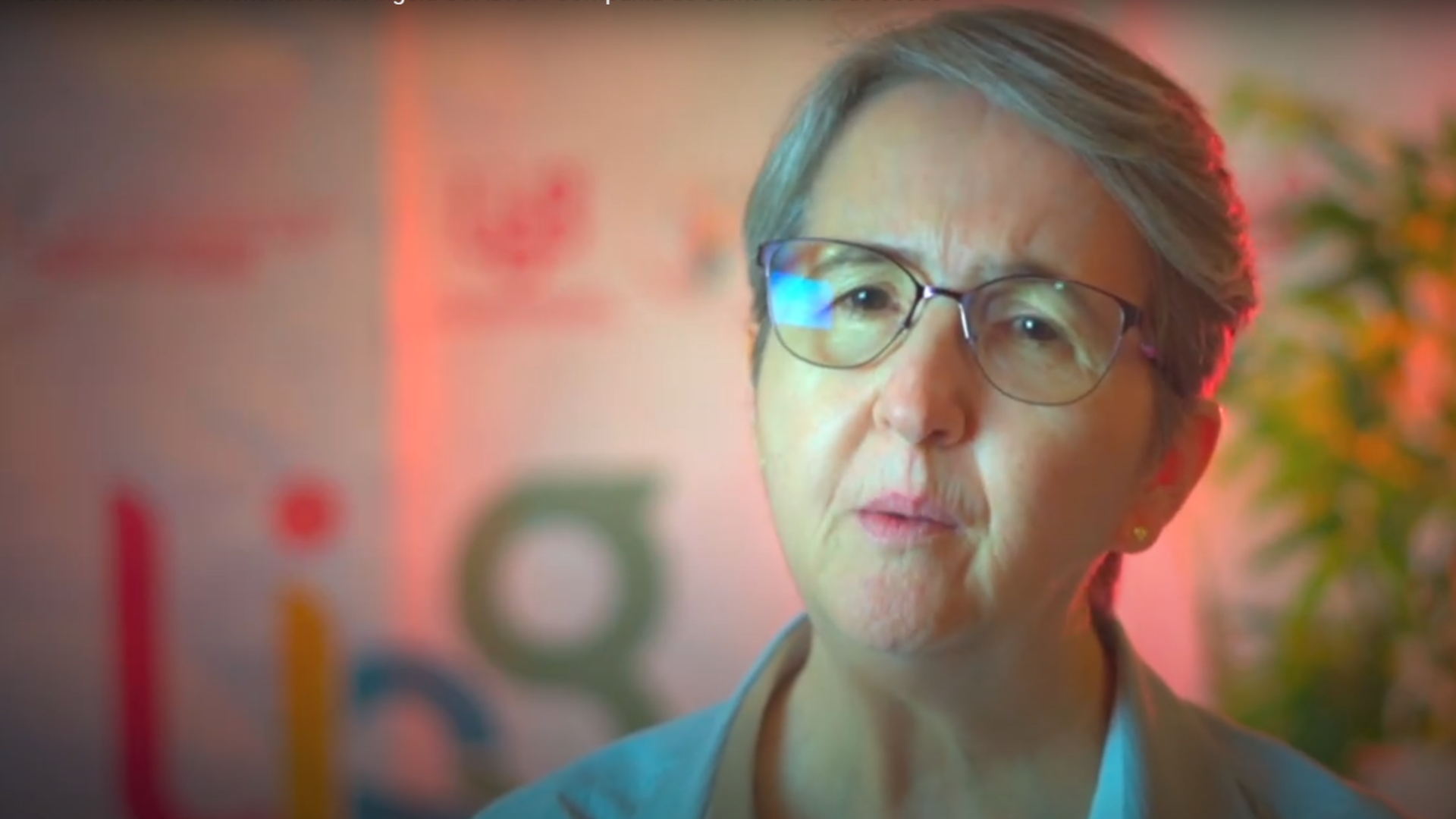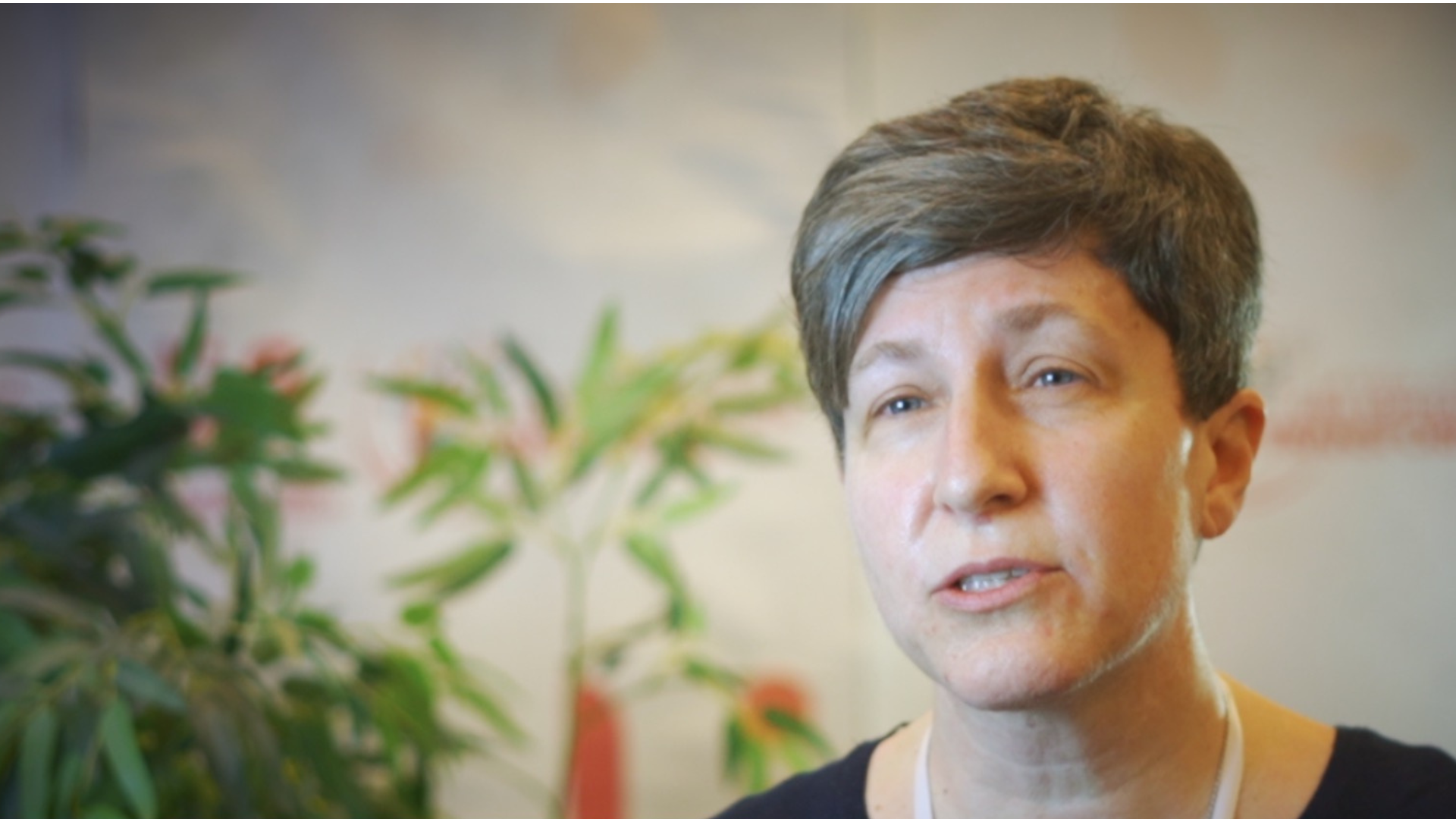
16/03/2022
News
I'm feeling vulnerable if I can't help
Interview with Sr. Alice Jurugo Drajea
"I'm feeling vulnerable if I can't help".
Sr. Alice Jurugo Drajea, Superior General of the Sisters Sacred Heart of Jesus
Resonance with the theme of the UISG plenary “EMBRACING VULNERABILITY in a synodal journey”
As a woman religious I resonate with this theme very well. In Africa, as a woman religious we live in a world of fragility, where there is a lot of violence that is difficult to understand the suffering of the people.
There is poverty and then we experience different faces of vulnerability in terms of financial poverty within the congregation and also in the society economic difficulties and even ideological issues how people understand us as religious is completely out of their understanding it's like a religions i have taken a path less travelled by many in the society and at the level of the church I realized as a woman religious I don't have firm foot in the dioceses for example my congregation is of diocesan right but you find that your voice is not really well heard.
The clergy in the parishes do not include you in decision making there is always constant battling with having our voices heard as if we are not part of the catholic church so this is how I resonate with the with this aspect of the theme.
The experience of VULNERABILITY
At the personal level I feel vulnerable in various ways when I am not LISTENED to for example you as a congregation you take certain decision at your top leadership level and when you hand it over to the church hierarchy the bishop and then he doesn't take any action.
I feel VULNERABLE, IGNORED in matters that are constitutional it's like an open rejection of you as a part of this church. We are also vulnerable at the congregation when we are unable to help as we would like to help the poor with whom we live who come to our doors for help. This is our vulnerability.
Then the other one is the situation of insecurity in South Sudan that is beyond our control and as you might have heard last year on the August 16 two of our sisters who were returning home from a good celebration were shot dead. As a superior general as a member of the congregation it was beyond my control and they died for nothing. Lastly the situation of refugees, some of my sisters are working among the refugees it is beyond our control so I feel vulnerable even as a superior general that is what I cannot respond to and fix it up.
As a leader the only way of coping with this situation is keeping in touch through the technology, now that we have the phones to call the sisters may be the sister is not well may be the community is deeply affected we keep in touch. So far within the congregation we have not been able to set zoom meetings and things like that but we were able to call them by phone and talk to them.
Definitely they covered the situation that knows no boundary has accelerated vulnerability at every facet to the point of death and then insecurity, in south Sudan it remains a very poignant point of feeling insecure and the insecurity gives rise to poverty because when there is insecurity people cannot move to look for what they can for their families even us we cannot reach out to the peripheries as we should to meet the poor people we are not able to go especially after physically experiencing the killing of our sisters we find ourselves vulnerable and the other aspect is the imposed policy by government which overrules the congregational rules. It becomes very difficult especially in our province of Uganda where policies from education and health.
The sisters once they are placed in a certain place you cannot transfer them so it is very difficult for us.
BIOGRAPHY
Sr. Alice Jurugo Drajea, PhD is an educator. She trained in Mater Dei Institute of Education, Ireland with Bachelor degree in Education.
She obtained a scholarship from Irish Government (2007-2009) for her Masters in Educational Leadership and Management at the University of Dublin, Trinity College in Ireland, and did her PhD in education.
Her PhD focused on the impact of parental education on their primary level children’s achievement.
She served as Assistant Education Secretary for Arua Diocese, Uganda 2016-2018.
She worked closely with the UNHCR in education programmes.
Currently, she is the Superior General of her religious Congregation in Juba since 2018, South Sudan. Previously, she served her congregation as Provincial Superior for seven years (1989-2004) in Uganda.
She is the founder of the Early Childhood Development (ECD) programme called Weaver Nest ECD Teachers’ Training Institute in Moyo District, Uganda.
Her additional skills include leadership, counseling, conflict resolution, civic education, religious formation, ICT and driving.
Notizie correlate
 News
Lunedì 08 Settembre 2025
Voci dalla Plenaria 2025: Un futuro di speranza e di comunione
Leggi
News
Lunedì 08 Settembre 2025
Voci dalla Plenaria 2025: Un futuro di speranza e di comunione
Leggi
 News
Lunedì 25 Agosto 2025
Voci dalla Plenaria 2025: Artigiane di speranza
Leggi
News
Lunedì 25 Agosto 2025
Voci dalla Plenaria 2025: Artigiane di speranza
Leggi
 News
Lunedì 18 Agosto 2025
Voci dalla Plenaria 2025: L’ascolto che genera vita
Leggi
News
Lunedì 18 Agosto 2025
Voci dalla Plenaria 2025: L’ascolto che genera vita
Leggi
 News
Mercoledì 02 Ottobre 2024
Embracing Reality: Finding Hope Amidst Challenges and Pain
Leggi
News
Mercoledì 02 Ottobre 2024
Embracing Reality: Finding Hope Amidst Challenges and Pain
Leggi